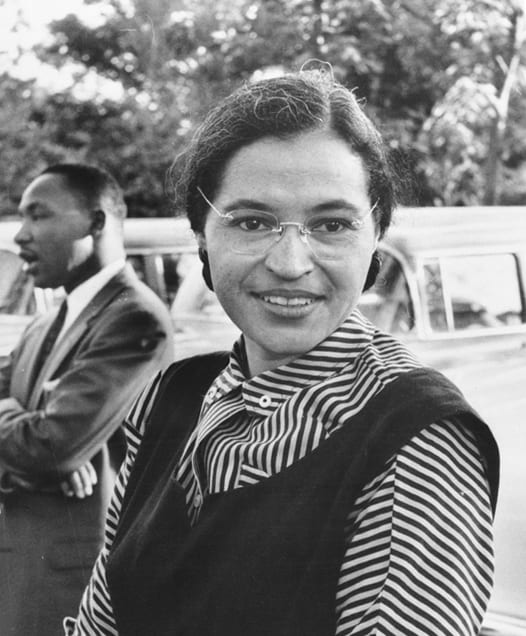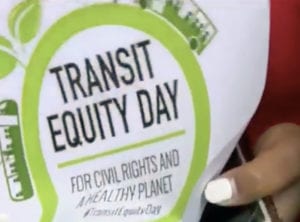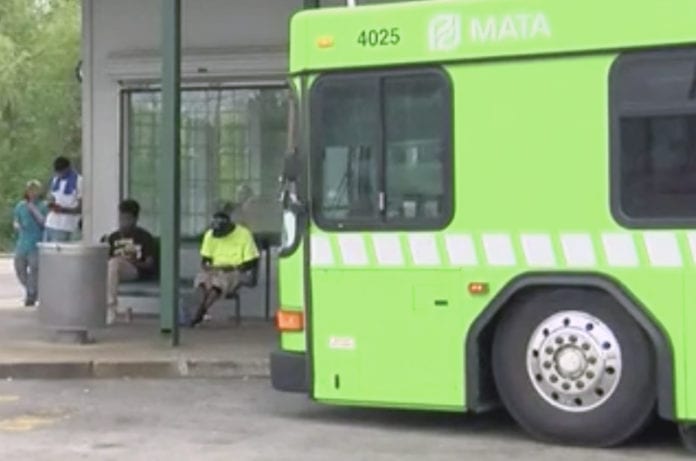The Memphis-area observance this week of Transit Equity Day in the U.S. brought together myriad groups and individuals united by a shared belief in the need for adequate funding of the Memphis Area Transit Authority (MATA).
Transit Equity Day served as a commemoration of the birthday of civil rights icon Rosa Parks on Thursday. Parks helped ignite a movement in early December 1955 when she refused to give her seat to a White man and move to the back of the bus then designated for Negroes.

The year-long protest that unfolded in Montgomery, Alabama hobbled the transit as African Americans carpooled, hitchhiked and walked to their daily destinations.
During a virtual ZOOM conference, elected officials, Greater Memphis Chamber principals and corporate representatives in Memphis and Shelby County committed to work for adequate funding of MATA.
“We’re not here to review the story,” said Dennis Lynch, Transportation Chair of the Sierra Club Chickasaw Group.
“We’re here to talk about how, in this fourth year of Transit Equity Day, devastating cuts in service have effected people’s lives – getting to work on time, making it to their place of worship, shopping for groceries,” said Dennis Lynch, transportation chair of the Sierra Club Chickasaw Group.
“And the devastation is heightened in communities of color.”
 The Sierra Club, along with the Memphis Interfaith Coalition for Action and Hope (MICAH), hosted the public hearing on Memphis public transit. The aim was “to obtain a re-commitment from public officials and elected leaders to fully fund MATA as outlined in the Memphis 3.0 Transit Vision Plan.”
The Sierra Club, along with the Memphis Interfaith Coalition for Action and Hope (MICAH), hosted the public hearing on Memphis public transit. The aim was “to obtain a re-commitment from public officials and elected leaders to fully fund MATA as outlined in the Memphis 3.0 Transit Vision Plan.”
MATA CEO Gary Rosenfeld described public transportation as “the great equalizer” in terms of increasing availability for individuals looking to work and to engage in recreation.
“People shouldn’t have to pay a premium of their time to have adequate transportation,” said Rosenfeld. “We need a dedicated funding stream which allows for long-term planning and growth envisioned in the city’s 3.0 plan.We need to connect people to jobs and restore the frequency of service.”
Rosenfeld said $30-35 million was needed annually to fund improvements and operate a transit system that genuinely responsive to the needs of its riders. He acknowledged that mitigation of COVID-19 has dramatically exacerbated the deficit in routes and service.
“Whereas before we were about to pick up 60 passengers, … because of the pandemic people have to be passed up from riding because only 10-12 passengers can ride at a time,” Rosenfeld said.
Greater Memphis Chamber CEO and President Beverly Robertson said the business community has been at the transit table.
“I remember we went up to Washington, D.C. to address lawmakers, and that year we brought back $11 million. We know how important public transportation is. We will continue to work for funding effective public transportation.”
Chamber Memphis Chamber Chair Willie Gregory said, “We recognize that a high quality public transit system is important to any city’s growth. … The chamber will continue working with MATA to that end.”
Shelby County Mayor Lee Harris said he was encouraged by the show of support from the business community.
“This pandemic has pulled back the veil on who we consider essential workers,” said Harris. “They are factory workers and other employees who need to get to work. They need to have adequate transportation.”
Members of the Memphis Bus Riders Union shared personal hardships with using MATA as the service is presently being offered. Passengers must be adequately spaced because of the pandemic, forcing some to wait for hours on a bus that can actually pick them up, participants were told.
Rosenfeld said more funding is needed to address the needs of disabled citizens, who have no other means of mobility but public transportation. MATA Plus is a special fleet of coaches designed for the disabled.
Shelby County Commissioner Van Turner Jr. pledged a more intensified effort to obtain additional funding from county coffers.
Co-sponsors of the event included: Memphis Bus Riders Union, Memphis Center for Independent Living, Memphis & Mid-South Regional Chapter of The Climate Reality Project, and Memphis for All.


